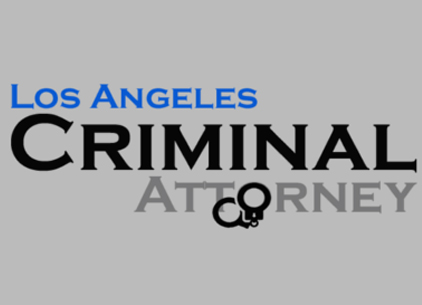Information on New Criminal Defense Laws in California
Blog - Page 12 of 19
What To Do When Your Child Is Arrested in Los Angeles?
Posted:
Children are the most rewarding yet most challenging to deal with. You can do everything possible to instill essential values and moral standards in your children and give them the right tools to make good decisions, but they could still surprise you with the unexpected. Many parents assume that they have a "good kid." However, this thinking changes when they receive the dreaded phone call informing them that their child is in trouble with the law. However, one arrest or mistake does not make your child a criminal or imply that they will lead a life of crime. Your child could be a victim of a situation they mistakenly put themselves in, a prank that took a wrong turn, or involvement with the wrong crowd. The way you respond after learning that your child has been arrested will have an impact on their case and their future. Here is what you should do when your child is... Read More
Consequences of Driving With a Suspended License in California
Posted:
Many drivers do not know it, but driving with a suspended license is a traffic offense that can land you in jail for a significant period and even pay a fine upon conviction. What you do soon after an arrest for the offense of driving with a suspended license can significantly influence the case's outcome at trial. Despite the valid concerns you could have about what the alleged case could turn out to be, do not panic and say anything you could regret to the arresting officers. One way you can protect your best interests and increase the odds of challenging the alleged case at every stage of the legal justice system is by retaining the services of an attorney. A skilled and seasoned attorney can investigate and examine the specifics of your unique case to build bulletproof defenses that can work out in your favor for an acquittal of the charge or a lighter charge. Keep... Read More
How is Resisting Arrest Defined Under California Law
Posted:
It is a criminal offense to resist an arrest in California. Resisting an arrest occurs when you willfully resist, delay or obstruct a police officer performing or attempting to perform their official duties. You could do so in many ways, including fleeing from a police officer, refusing to be handcuffed, or refusing to step out of your vehicle when an officer asks you to. The offense is mainly a misdemeanor, attracting severe penalties, including jail time for a maximum of one year and court fines of up to $1,000. Charges for resisting an arrest can be intimidating. That is why you need the help of a criminal attorney to walk you through the legal process and protect your rights. Your attorney will also help you understand what resisting an arrest entails and its legal implications for those found guilty under the law. The Legal Meaning of Resisting Arrest in... Read More
What Happens When You Disobey a Police Officer in Los Angeles?
Posted:
Have you disobeyed a police officer in California? Law enforcement officers have the authority to issue lawful orders to a large population to reserve public safety or maintain order during emergencies. If the public was allowed to disregard these orders, it could be challenging for the police to perform their duties. To ensure police achieve their mission to protect and serve, Vehicle Code (VC) 2800 criminalizes refusal or failure to willfully observe legal orders or instructions from a peace officer in uniform. When you disobey lawful orders from an officer, you risk a jail term of half a year if sentenced for the violation. The blog below highlights what it means to disobey an officer to understand your charges if you are arrested for the crime. Legal Definition of Disobeying a Police Officer Defying a police officer means that you failed to obey their orders,... Read More
What is Accessory Before the Fact in California
Posted:
Criminal liability in California can extend to anyone who contributes to the offense before or after the offense. Helping or encouraging someone to commit a crime could result in charges for being an accessory before the fact. This means you encouraged the offender to commit the crime or participated in any activities leading up to the offense. If you are charged as an accessory before the fact, contact Los Angeles Criminal Attorney to prepare a defense against these charges. Meanwhile, here's everything you need to know about being an accessory before the fact. Legal Definition of an Accessory Before the Fact You are considered an accessory before the fact if you either help or encourage another person to commit a crime. In California, you are an accessory if you encourage or assist the person before or during the offense. In some states, however, being an accessory... Read More
What Makes an Assault Aggravated In Los Angeles?
Posted:
Most individuals associate assault with physical aggression against another person. However, in California, that's not the case. Battery, not assault, is the intentional and unlawful use of violence or force against another person. The state of California defines assault as an illegal attempt, along with the present capability, to inflict a violent bodily injury to another person. If found guilty, you could face a $1,000 fine and/or six years behind bars. Because of this, you can be charged with assault without even laying a finger on the alleged victim. A simple fist wave in another person's face would result in assault charges. Assaults can also take the following forms: Threatening to murder someone displaying a deadly firearm or weapon Swinging a fist punch and missing Throwing a stone at somebody and missing Understanding What Aggravating Factors... Read More










